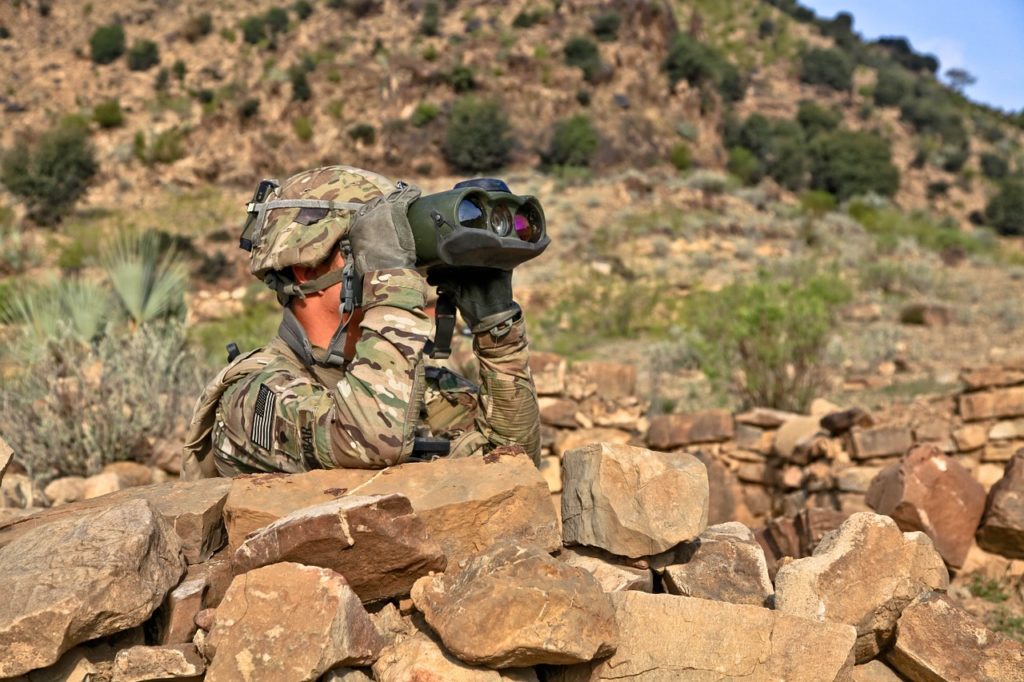Business Book Review: The Scout Mindset

I’m a tiny bit impressed with myself. I probably shouldn’t be. See, I read The Scout Mindset by Julia Galef, and I only once thought, “So and so should read this book.” Other than that one time, I really focused on how I could apply these ideas to my own life.
As for that one slip up…well, as you’ll see below, I’m working on it. Becoming a scout is a process, not a switch.
Let’s take a step back and look at what it means to be a scout.
High-Level Summary of The Scout Mindset
Worth a Read for Indiepreneurs: Absolutely. The world has become more divisive than at any point in recent history. The Scout Mindset is a way to try to get past that and really figure out the facts.
What It Does Well: It takes a cold, apolitical look at the world and tries to help the reader do the same. The author even uses stories to call herself out.
The Downsides: Will people have enough of a Scout Mindset to take up the challenge?
Overall Thoughts
If a self-improvement book doesn’t make the reader think and want to take action, then it has failed.
I’m happy to report that, at least for me, The Scout Mindset has easily cleared that hurdle. I’ve already written three posts about ideas that popped up while reading the book, with notes for potentially several more.
I’ll get into some of the specifics in the Key Takeaways section, but Galef fills her book with ideas on how we can get out of our own identity and start to look at the facts for what they are. Galef clearly puts in a conscious effort not to site works and studies with weak data, even if they support her position. And she is clearly trying to keep political bias from clouding her writing.
Furthermore, Galef makes a compelling case about avoiding digging in when presented with new facts that might weaken our viewpoint. If our viewpoint can be weakened by pesky little things like facts, maybe its time to make a shift.
So definitely a book everyone should read. The last self improvement book to have a huge cultural impact was James Clear’s Atomic Habits. While I doubt The Scout Mindset will quite hit that high a level in the zeitgeist, it would do a lot of good for our society if it came close.
Is It Enough to Convince the Entrenched?
Let me follow up the praise with a concern, which comes as a follow up to my introduction.
I only thought about so and so needing to change once while reading the book. Now that I’ve finished it, I wonder if those with a truly soldier mindset (more on what that means in a minute) will get anything out of this book? Or will the dig in more?
Probably. But if it can start the process, even with those on the edges, maybe that’s enough.
Key Takeaways
Scout vs Soldier
When you look for the summary of The Scout Mindset, the main thing that’s going to come up is the Scout versus the Soldier mindset. It’s Galef’s framework for the rest of her book, so we best start there.
Galef presents us with two potential ways to process new information. One is that we have our identity and beliefs, and we hold to those identity and believes until it’s basically impossible to do so. Many discussions about ideas use martial language, so Galef co-ops that with saying that we think like soldiers: bunker down and protect our side from the onslaught. It doesn’t matter if the other side is right. It doesn’t matter if the other side has superior numbers. We have our team and we protect our team.
The book goes through various reasons we do this. Each one of these is analyzed in depth, but I want to list them out here, since each is fascinating.
- Avoid unpleasant emotions
- Feel good about ourselves
- Motivation
- Convince ourselves to convince others
- Make us look good
- Fit in
That last one is especially important. Traditionally, fitting in to your village was the way you survived. Even if the whole town believe that they can summon the goddess Carly Rae Jepsen to protect them from years of famine, you were more likely to survive following along with the group than trying to change them.
A scout, however, tries to find the truth, even if it’s different from what they believe. To continue the martial example, Galef talks about a military scout who is creating a map. That map needs to be accurate. The scout cannot make a bridge to appear just by putting it on the map. Some areas will continue to be hazy for the scout, too, and that’s okay! As long as the scout acknowledges that haze and tries to work to clear it up.
Unfortunately, the scout isn’t always popular. There’s a lot of “shooting the messenger” potential here. And if you’re a middle manager in a large corporation, there’s often very little incentive to go against the rest of the tribe.
For those who are trying to figure out the truth, or for those who are trying to strike out on their own, having this open mindset is going to get you much farther than insisting that your delusions are correct.
Changing Your Mind
Here’s the thing: we all want to be right.
When we insist we’re right when we’re actually wrong, we might be able to live a long, healthy, and productive life. But it’s a life that’s wrong.
If we are insistent that we’re right and we keep butting heads with others, it’s going to lead to a lot of unnecessary conflict.
The Scout Mindset gives suggestions on how to work on changing your mind, even if it’s just by a little bit.
Hold Your Identity Lightly
This was probably my favorite section in the book. We all need to hold our identity a bit more lightly.
Two days before I finished this book, a new study out of the University of Virginia indicated that 52% of Trump voters and 41% of Biden voters at least somewhat agreed that it’s “time to split the country.”
That is insane!
Yes, there’s policy disagreements between left and right, but, at least from what I’ve seen, it seems like the biggest reason to hate the other side is consistently simply because THEY’RE THE OTHER SIDE!
My point, and the book’s point, isn’t to look at which side is right and which is wrong. It’s that we’ve now gotten into this tiff where the side seems to be more important than the points they’re making.
And, of course, this isn’t limited to politics. Galef mentions the mommy wars, vegans, science, and so on and so forth.
Galef’s point isn’t to abandon our identities. It’s holding those identities lightly. It’s being able to disagree without being disagreeable. To concede where the opposing view has a point and where your view has weaknesses.
None of this is to encourage you to abandon who you are. It’s to analyze why you believe what you believe, and make tweaks as new things come to light.
And, most importantly, realize that those tweaks make you a better person, not a lesser one.
Or, as how my wife likes to put it, when you know better, do better.
Other Business Book Reviews
Never Split the Difference — Negotiating at work and in life
Designing Your Life — Finding that business path for you that doesn’t leave you in tears
Strengthsfinder 2.0 — Work on your strengths rather than improving your weaknesses
The Gentle Marketing Revolution — Marketing without lying
Life’s Great Question — Finding meaning in work by serving others
Creating High Performers — Making performance reviews productive
Don’t forget to sign up for my newsletter, which currently is running with a free 6 lesson course about how set up your own freelance efforts.





